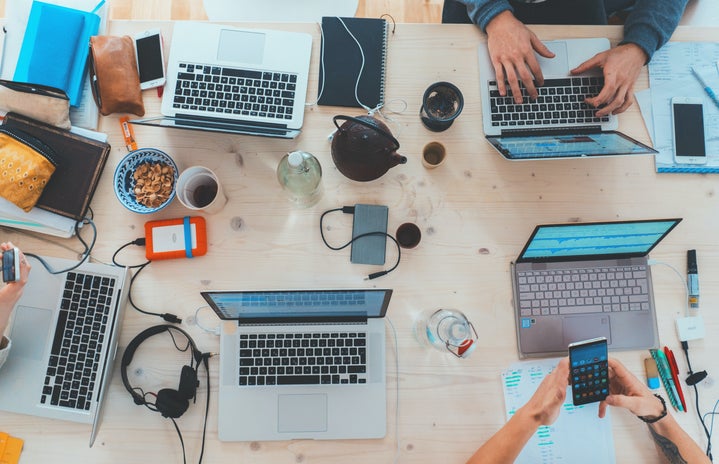Have you ever stopped to think about how much information there is in world today? We have every answer to every question we could possibly ask, right at our fingertips. Whether you’re wondering something historical like which year the Greeks invaded Sparta, or who invented sliced bread, or whether you simply want a recipe to make some morning pancakes – that knowledge can be yours in a matter of seconds.
On top of the endless facts, we can obtain through lightning-quick Google searches, our brains are actually subjected to further, inconceivable amounts of information every second of the day. We are bombarded with constant communication from every source around us, which our brains quite literally cannot handle. Think of all the sounds, sights, objects, textures and even decisions we make every minute without realizing. You decided to wear a specific outfit today, listen to a specific song, go on a specific app while drinking a specific coffee – most of which you didn’t think twice about. Because of this constant stream of information, our brains filter out most of these details and focus only on a select few, so as to avoid a complete information overload. This process has been conditioned within us and is called automaticity – doing things without occupying your mind with the low-level details required. This automaticity seems like a nifty advantage in life but becomes majorly problematic when the media learns to manipulate it and use our subconscious for their own benefit.
Especially today, with our unlimited exposure to the internet, we are easily overwhelmed by the enormous amount of communication and information. This leads us to rely almost exclusively on our automaticity which, at the end of the day, keeps us stuck in the same mindset and habits we’ve become accustomed to. This is exactly what media programmers and advertisers want from our technology usage– to have influence over our automaticity so that we turn to them and their product/brand/content without a second thought. Adverts, TV shows, influencers and even friends show us things we believe we need to be happy, when in reality, the media is just manipulating us for profit.
We don’t really need the newest iPhone or the trendy Shein clothing that just went on sale. We don’t have to watch that one TV program that everyone is talking about or install the newest app to show yet another part of our lives. The media is simply primed for addiction, exploiting our insecurities, and teaching us that they have the solutions to make us look and feel better. Reality check – none of that will ever be satisfactory if we remain in the clutches of the media, because if they solved all our problems, they would be out of business.
We should be using our technology and time in a much more productive and beneficial way, but we forget about these due to our programmed habits. If we wake up and check Instagram each morning for 20 minutes, the routine is almost involuntary and difficult to break. By identifying and trying to consciously change these habits, we can come away with real benefits from our screen time. Instead of following the Kardashians’ dramatic lives like it’s a religion, we could begin to learn about the environment, read books, research history and so much more. If we start spending time on these instead of mainstream forms of entertainment, the media will loosen its grip on our subconscious, and perhaps we won’t be so easily influenced to buy the latest products or keep up with the latest trends. It is time to take back the reigns and have a bit more control over our own minds.


